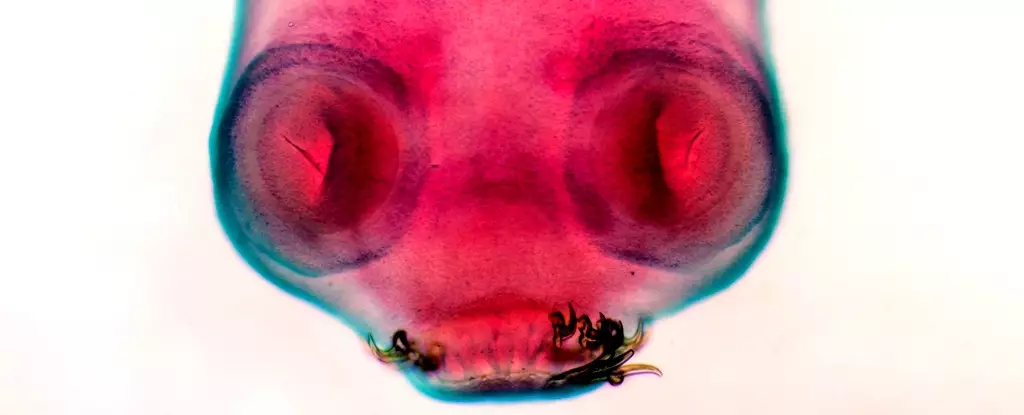The health of independent US presidential candidate Robert F. Kennedy Jr. has once again come under scrutiny due to a neurological issue he faced in 2010. In a recent deposition from 2012, Kennedy disclosed that a worm had entered his brain, eaten a portion of it, and then perished. Initially believed to be a brain tumor, it was later identified as a pork tapeworm larva that had lodged itself in his brain, causing cognitive difficulties. This revelation sheds light on the potential risks associated with parasite infections, particularly in individuals residing in low-income countries where these parasites are more prevalent.
Tapeworms, such as the pork tapeworm Taenia solium, require a complex lifecycle to thrive. Humans serve as the definitive host for mature tapeworms, which attach themselves to the intestinal wall and release eggs into the digestive tract. These eggs are excreted in feces and can be ingested by pigs, leading to cysticercosis, an active infection that affects various tissues, including the muscles, liver, kidneys, lungs, and even the brain. When humans consume improperly cooked pork from infected animals, they risk ingesting cysticerci, which can then travel to the brain and cause neurocysticercosis, a severe condition that can have life-threatening consequences.
Identifying a tapeworm infection can be challenging, as initial symptoms are often mild and non-specific, resembling common digestive issues such as nausea, abdominal pain, diarrhea, and changes in appetite. In some cases, the presence of tapeworm eggs in feces or the visualization of the tapeworm itself during medical procedures may provide diagnostic clues. However, the real danger arises when tapeworm larvae reach the brain, resulting in the formation of cysts that can compress neurons and lead to neurological symptoms such as seizures, cognitive deficits, and even death. Prompt diagnosis and treatment are essential to prevent further complications.
Treatment and Prevention
The management of tapeworm infections typically involves the use of antihelminthic drugs such as niclosamide and praziquantel, which target various types of tapeworms. In some cases, anti-inflammatory medications may also be prescribed to reduce inflammation caused by the infection. Surgical intervention may be necessary for patients who do not respond to medical treatment. To prevent tapeworm infections, practicing good hand hygiene is crucial, especially after using the toilet or handling raw meat. Additionally, ensuring that meat is cooked thoroughly can help eliminate any potential sources of infection.
The case of Robert F. Kennedy Jr. highlights the serious implications of neurological infections caused by tapeworms. By raising awareness about the risks associated with these parasites and emphasizing the importance of early detection and treatment, we can work towards preventing such cases in the future. It serves as a reminder of the importance of maintaining good hygiene practices and being vigilant about food safety to protect against potentially devastating consequences.


Leave a Reply